Iran Expanding Its Cyber Influence Operations Globally: Microsoft

Tech giant Microsoft warns Iran continues to be a global threat with its state-backed hackers expanding their activities.

Tech giant Microsoft warns Iran continues to be a global threat with its state-backed hackers expanding their activities.
To achieve its geopolitical goals, Iran is now expanding its cyber playbook to include disinformation campaigns, Microsoft said in a report on Tuesday.
According to the report, the Iranian government has been involved in 24 "cyber-enabled influence operations" in 2022, three times higher than 2021, when there were seven.
The majority of these operations are attributed to Emennet Pasargad, a sanctioned Iranian state actor that is seeking to undermine the poll integrity in 2020.
“[Iran] is now supplementing its traditional cyberattacks with a new playbook, leveraging cyber-enabled influence operations (IO),” added the big tech firm.
Although Iranian techniques may have changed, their targets have not. Persian Gulf states, prominent Iranian opposition figures and groups, and Israel remain the targets of these operations.
Accordingly, Iran directed nearly a quarter (23%) of its cyber operations against Israel between October of 2022 and March of 2023, with the United States, United Arab Emirates, and Saudi Arabia also bearing the brunt of these efforts.
“Iranian cyberattacks and influence operations are likely to remain focused on retaliating against foreign cyberattacks and perceived incitement of protests inside Iran,” warns Microsoft.
Microsoft Threat Intelligence revealed a threat from the Iranian hackers, known as "Mint Sandstorm" in April claiming they are targeting critical US infrastructure including transport, energy and ports.
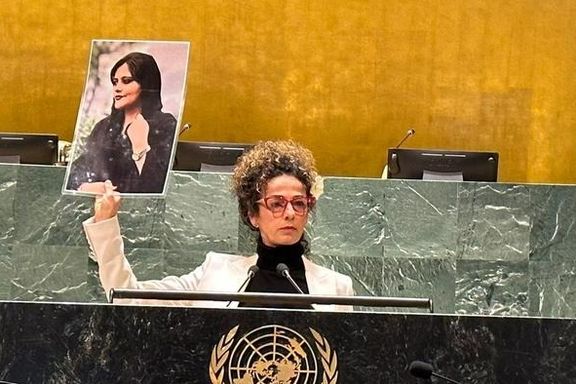
Iranian American journalist, author, and women's rights campaigner Masih Alinejad presented a draft resolution to the UN condemning targeting journalists.
In her campaign, coinciding with World Press Freedom Day, she called upon the UK to sponsor the resolution in a bid to recognize the threats made to Iran International journalists who in February, were forced to evacuate the London offices and relocate to Washington after being warned that authorities could no longer protect them from threats originating with Iranian agents.
"The UK government actually asked one of the biggest [broadcasters], Iran International TV, to stop its activities and to move from the UK. It was advice. So, I want to call on you, the UK government … and the General Assembly to pass this [resolution]," Alinejad told delegations in attendance in the General Assembly Hall.

The appeal comes just days after it was revealed that Iran is the world’s second worst country, only after China, for the repression and imprisonment of journalists.
Worsened by revolutionary unrest, Iran jailed three times the number of writers in 2022 than 2021 as it cracked down on voices of dissent. The findings, from PEN America’s latest Freedom To Write Index, showed the extent of oppression haunting the country’s writers and journalists, heightened after the death in custody of 22-year-old Mahsa Amini in September.
Alinejad, who was forced into exile in 2009, is an outspoken critic of the Islamic Republic, and the founder of a campaign against gender apartheid practices in that country, where women who choose to appear in public without a hijab risk fines, arrest, imprisonment, and death.
In 2021, the US Department of Justice announced conspiracy charges against Iranian agents that sought to kidnap Alinejad from New York and rendition her to the Islamic Republic. Earlier this year, the Justice Department filed charges in a murder-for-hire plot directed against her by the Iranian regime.
Within Iran, the Intelligence Ministry has reportedly ordered journalists and activists to remove posts on social media about chemical attacks perpetrated against schoolgirls, and dozens of journalists have been arrested over the last seven months because they reported on nationwide anti-regime protests sparked by the death of 22-year-old Mahsa Amini while in police custody for allegedly violating the compulsory hijab laws.
Alinejad has long been a proponent for oppressed journalists who are living in fear both at home and abroad as the Iran International case proved. She said that with more than 70 journalists currently in jail in Iran, the risks continue.
She recently said: "The Islamic Republic uses the tools of the state – surveillance, intimidation, violence, and a corrupt judiciary – to browbeat people into submission, but they are failing. Even though being a journalist in Iran can land you in jail, can get you killed, can get you tortured, they are failing. But they cannot be left to fight alone.”
Some of the country’s leading voices have been severely punished in recent months including Nasrin Sotoudeh, who was threatened with being returned to jail after speaking to or writing for international media outlets; author and activist Narges Mohammadi, who bravely continued to speak out from Evin prison; and writer Golrokh Ebrahimi Iraee, arrested in September.
Last week, Karin Deutsch Karlekar, PEN America’s director of Free Expression at Risk Programs, said: “Iran’s creative community—long at the forefront of fighting for free expression and human rights—was singled out as part of a broader crackdown on dissent in 2022. Alongside the dozens of writers and artists detained, the harsh sentences handed down and custodial abuse faced by some prisoners were an attempt to warn others to keep silent.”
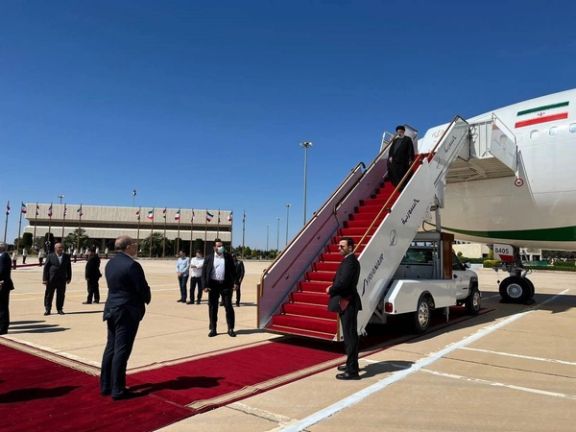
Iranian President Ebrahim Raisi landed in Damascus on Wednesday for talks with his Syrian counterpart Bashar al-Assad, media in Tehran and Damascus reported.
This is the first visit by an Iranian head of state since civil war broke out in Syria in 2011.
With military and economic support from both Iran and Russia, Assad regained control of most of Syria from rebels, using at times indiscriminate military force.
Raisi's visit comes as Iran and regional rival Saudi Arabia rebuild ties after years of tensions. Arab nations which had isolated Syria over its crackdown against protests in 2011 are developing a roadmap to end the 12-year war and reintegrate Syria into the Arab fold.
Speaking to pro-Iran broadcaster al-Mayadeen on the eve of his visit, Raisi said the trip would "consolidate and develop" ties with Syria and other allies, including Lebanese armed group Hezbollah, which also intervened in Syria on Assad's behalf.
Iranian and Syrian flags lined the airport road on Wednesday in preparation for the arrival of Raisi and his accompanying delegation, which includes Iran's ministers of oil, defense, foreign affairs and telecommunications.
Syrian state media said "a number of agreements" would be signed during the two-day visit.
Tehran hopes to expand its economic footprint in Syria, although itself faces a serious financial crisis partly due to US sanctions.
In parallel, it has become even more entrenched militarily. An Israeli rocket strike on Damascus in February killed Iranian military experts and Tehran has used the flow of aid in the aftermath of the deadly February earthquake to bring in arms.
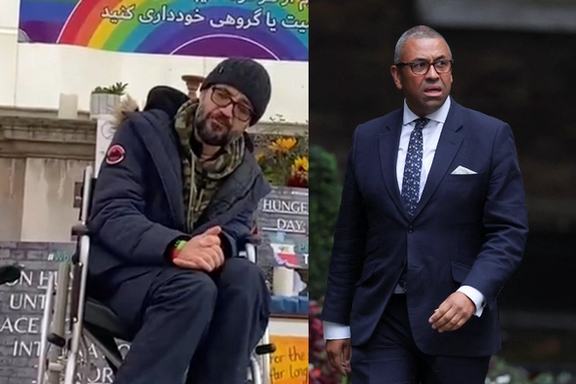
Iranian hunger striker Vahid Beheshti vowed not to give up his fight until the UK proscribes the IRGC.
Beheshti’s comments came after the UK Foreign Secretary James Cleverly urged him to end his hunger strike amidst fears for his health.
Beheshti, 45, wants the UK to declare Iran's Islamic Revolutionary Guard Corps a terrorist organization. After surviving on water, coffee, and sugar cubes for 70 days, he is no longer able to walk.
The Conservative MP Nicola Richards raised the issue Tuesday in the House of Commons saying that “Vahid Beheshti was recently supported by 125 cross-party parliamentarians in his campaign to proscribe the IRGC”, which is “responsible for committing grotesque human rights abuses”.
Richards asked the Foreign Secretary if he recognized the urgency of the IRGC prescription.
Cleverly stated that Beheshti has met with ministerial colleagues, both in the Home Office and in the Foreign Office. “I do worry about his health and would urge him to stop his hunger strike.”
“With regard to Iran’s completely unacceptable behavior, we have responded by sanctioning the IRGC in its entirety and certain leaders of the IRGC specifically,” noted Cleverly.
He added: “We, of course, always keep options available and under review.”
Beheshti said such an answer is not acceptable - the UK like many other nations trying to tread a careful line on Iran in a bid to revive the nuclear deal.
Several members of parliament and thousands of British citizens demand the proscription of the IRGC.
On Saturday, thousands attended a rally in London and around the world in support of the campaigner.
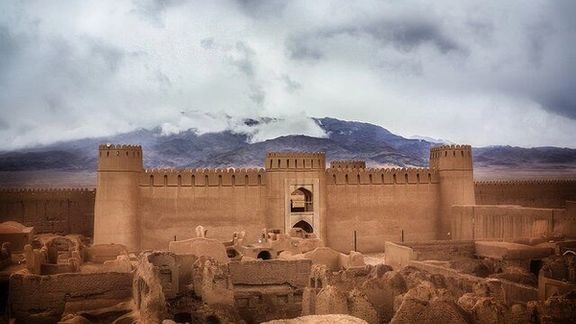
Iranian media say the government’s plan to lease historically important buildings for business development is tantamount to “auctioning off Iranian heritage”.
“What will the role of the government be in preserving the country’s historical heritage if the ministry … grants the lease of all historical sites for business development,” reformist Sazandegi newspaper wrote in an article Tuesday, entitled “Auctioning Off Iranian Heritage: A Report on the Auction of 19 Historical Buildings”.
“Should we expect Persepolis, the tombs of [national poets] Hafez and Sa’adi [Shirazi] and the Naghsh-e Jahan Square [in Isfahan] to be also put on offer for business development?” Sazandegi asked.
The plan was disclosed last week by the semi-official Iranian Students News Agency (ISNA) which provided the names of the 19 culturally and historically significant buildings on the auction list of the cultural heritage, tourism, and handicrafts ministry.
Ehsan Dehghani, an official of the ministry, told ISNA that the auction for granting the leases for business development projects, such as turning them into hotels and restaurants, will be held by the ministry on May 22.
One of the most significant buildings on the list is the Rayen Castle, an adobe castle in Kerman Province which is believed to be 1,000 years old, possibly with much older foundations dating to pre-Islamic times.
Another building on the list is the country residence of Nasereddin Mirza, a Qajar prince. The building was confiscated from the prince’s heirs, like many other buildings owned by members of the Pahlavi and Qajar dynasties, following the Islamic Revolution of 1979 and is owned by the government now.
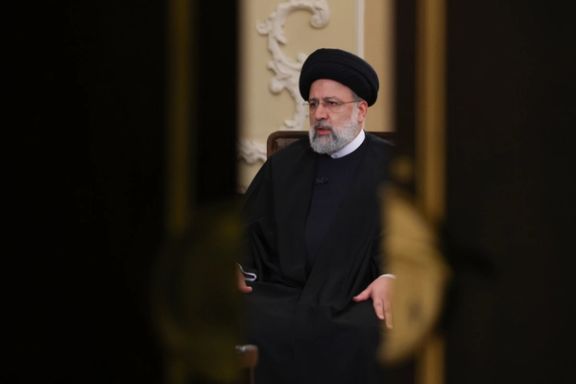
The plan is part of the massive scheme of President Ebrahim Raisi’s government to liquidate public assets. A seven-man team endorsed by Supreme Leader Ali Khamenei are responsible for the implementation of the scheme with full legal immunity for the consequences of their work. The team is headed by Vice President Mohammad Mokhber, who practically runs the administration and is closely linked with Khamenei’s office.
The Raisi administration decided to sell public properties in November 2022 to raise money amid financial crisis and a large budget deficit to keep itself afloat.
The shady privatization plan, which is promulgated as ways to improve the generation of wealth and production in Iran, has been met with skepticism by the public, who have witnessed corrupt “privatization” in the past 15 years, when state properties were sold at ridiculously low prices to well-connected individuals.
In May 2020, many archaeologists and ordinary Iranians strongly objected to a motion by 46 lawmakers to legalize private archeological excavation and trade in ancient artifacts and antiques in the parliament to legalize private archeological excavation and trade of ancient artifacts and antiques.
Critics said the plan was prepared without any consultations with expert organizations such as the Research Institute of Cultural Heritage and Tourism, the Society of Iranian Archeologists, or the Archeology Taskforce of the Ministry of Science and is in contradiction to several existing laws, which regulate archeological excavation and trade in items of historical value.
Privatizing excavation and legalizing trade would deprive the country's own museums, which would not be able to compete with private buyers, and deprive them of any future findings, a group of prominent archaeologists said in a letter to Parliament Speaker Mohammad-Bagher Ghalibaf.
Archeologists also argued that approval of the motion could result in inexperienced excavators damaging archeological sites and their contents as well as lack of proper reporting of information related to the excavation sites, which are of great significance to historians and archeologists.
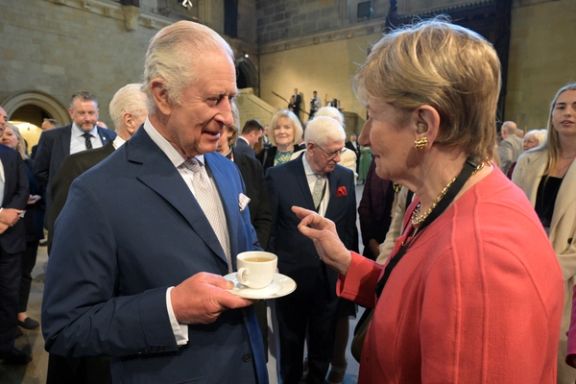
Britain has not issued invitations to King Charles' coronation to the leaders of Russia, Belarus, Iran, Myanmar, Syria, Afghanistan and Venezuela, a British source said on Tuesday.
Heads of state from other nations with whom Britain has full diplomatic ties were invited, as were representatives of British realms and overseas territories. Invitations were issued to senior diplomats, rather than heads of state, for North Korea and Nicaragua.
Reuters quoted UK sources as saying that Iran, and the other countries seen as pariah states have not been invited to the historic event.
The United Kingdom, along with the European Union and the United States have issued a series of sanctions against Iran since September 2022 for human rights violations and weapons transfers.
Iranian security forces killed more than 500 civilians and arrested more than 20,000 after anti-regime protests broke out last year over the killing of a young woman, Mahsa, Amini in 'hijab police' custody.
Iran has also been sending killer drones and reportedly other weapons to Russia that have been used against civilian targets in Ukraine.
There are demands among British lawmakers and the Iranian community to fully proscribe the Revolutionary Guard as a terrorist group, mainly for their role in the bloody suppression of protests and their support for terror groups in the Middle East.
With reporting by Reuters